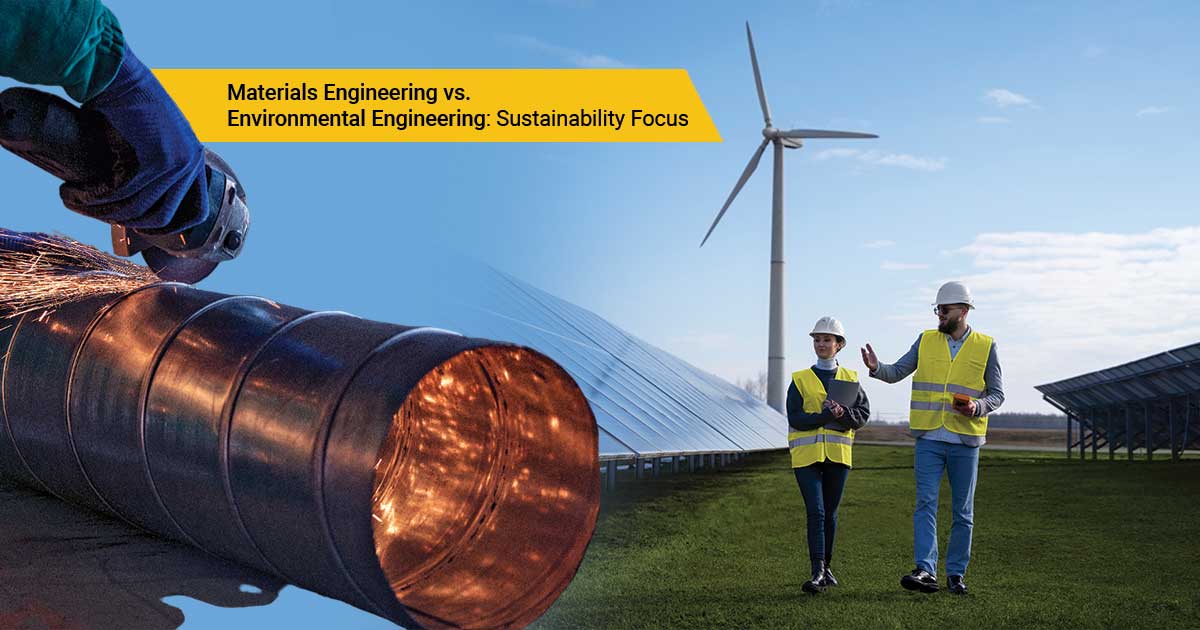FET Blogs


FET Blogs



29 January 2024
Engineers play an important role in refining the raw materials that occur naturally to create useful devices and solutions. Engineering studies hone problem-solving skills, which can be applied in many fields. If you are passionate about protecting the planet and smartly using its limited resources, environmental engineering and materials engineering are two streams to learn about creating sustainable solutions to reduce pollution, minimise waste, recycle and reuse, create efficient waste management systems and so on. Engineering is the process of improving the system, increasing efficiency, and applying design processes to create solutions.
Engineering courses can be pursued after 10th grade through a Diploma in Engineering. After a Diploma in Engineering, the Bachelor of Engineering programme is of 3 years duration. After 12th grade, the Bachelor of Engineering (BE) or Bachelor of Technology (B.Tech) courses are of 4 years duration.
To be eligible for the programme, in 12th grade, the candidate must score a minimum of 50% with Mathematics, Physics, Chemistry, and Biology as compulsory subjects.
Materials Engineering, or Material Science Engineering is an interdisciplinary field where one studies properties of matter and its application in various engineering and sciences. Students learn about ceramics, metals, polymers, composites, and semiconductors along with chemistry, physics, and life sciences. Students will understand the science of structures. The syllabus covers Basic Electrical & Electronics Engineering, Mechanical Behaviour of Materials, Chemistry, Engineering Drawing, Materials Characterisation, Phase Equilibrium in Materials, Computer Programming, Engineering Mechanics, Iron and steel-making, Thermodynamics, Kinetics of Materials, Mathematics and Physics, Industrial Economics, Electronic and Optical Materials, Corrosion and Degradation of Materials, Fundamentals of Materials Processing, Principles of Powder Processing, HeatTreatment of Metals, Diffusion in Solids, Manufacturing Processes: Selection and Design and so on.
Environmental engineering is a sub-branch of Chemical Engineering and Civil Engineering courses. It concerns itself with natural resource management, environmental pollution, and water resource management among other things.
The subjects studied in the courses are Engineering Maths, Engineering Physics, Elements of Civil Engineering and Engineering Mechanics, Basic Electrical Engineering, Environmental Chemistry, Environmental Biology, Strength of Materials, Surveying Construction, Elements of Environmental Protection, Municipal Solid Waste Management, Origin and Characterisation of Environmental Pollution, Hydraulics and Hydraulic Machines, Applied Engineering Geology, Wastewater Collection and Drainage System, Water Treatment Engineering, Water Supply and Distribution System, Hydrology and Water Resources Engineering, Geotechnical Engineering, Management and Entrepreneurship and so on.
As a materials engineer, one can work in technical areas research and development, and manufacturing. One can also enter managerial roles in sales, marketing, consultation, or entrepreneurship. The roles available for Materials Engineer are -
You can work in the transport industry, universities, space research organisations, mining industry, manufacturing industry, or FMCG companies to name a few. They can become an entrepreneur who manufactures clean and environment-friendly substitutes for harmful or expensive materials. Environmental Engineers work in roles such as -
Environmental engineers can work with non-government organisations, international environment conservation organisations and government bodies, they are in demand with the corporate social responsibility teams of multinational companies. They can work with financial institutions and law firms as expert consultants.
Sustainable development, sustainable manufacturing, clean energy sources, and recycling are strong terms and there is ample scope for engineers to contribute towards conservation and sustainability.
Both Materials Engineers and Environmental Engineers provide solutions for responsible development through innovative engineering solutions. If you feel strongly about conservation and environment protection, then merge your passion and talents to create actionable solutions as an engineer.
A1: Engineering develops sustainable technologies like renewable energy and waste management systems.
A2: G.D. Agrawal is a notable Indian environmental engineer for his river conservation work.
A3: Yes, environmental engineering is stable due to growing sustainability needs.
Popular Post
17 February 2026
AIE Full Form
10 February 2026
AEIE Full Form
22 January 2026
AE Full Form
16 January 2026
What is Aerospace Engineering?
16 January 2026
What is Chemical Engineering?
Ask an Expert for Free